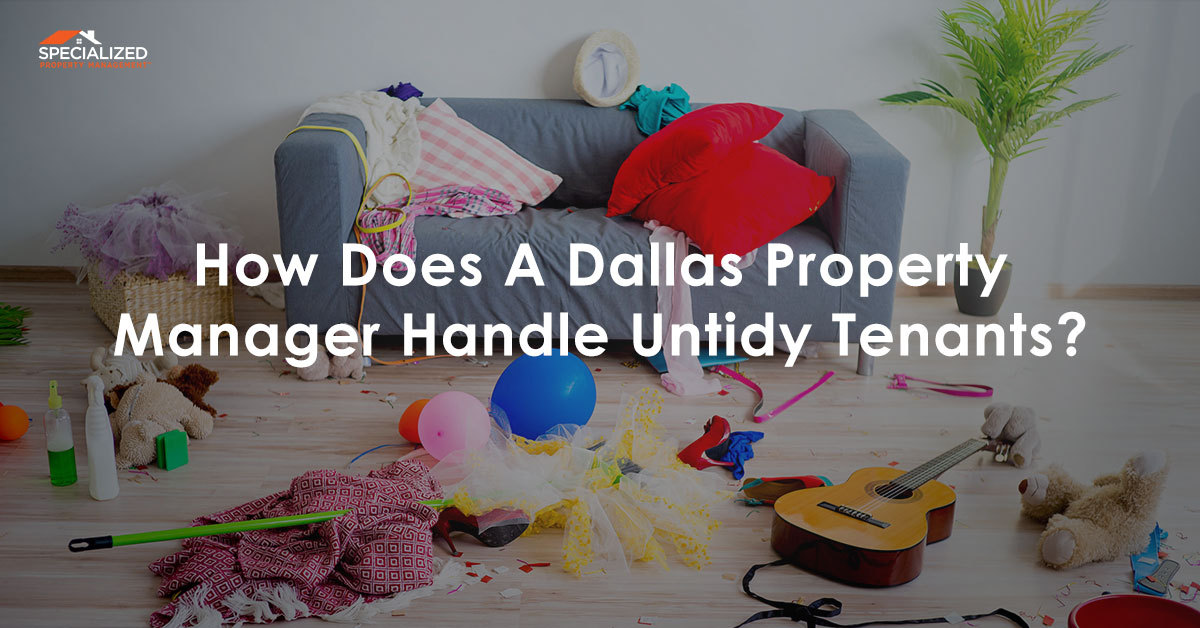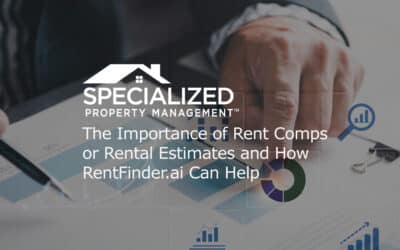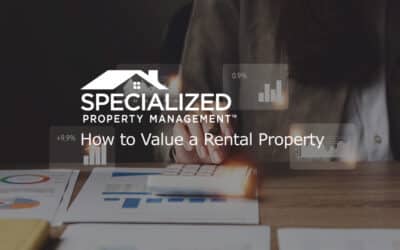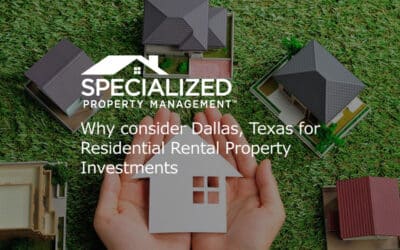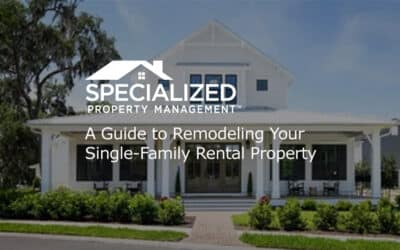When leasing property, rental agreements have core elements. A property owner provides a home; a tenant agrees to pay rent for that home. Then the agreement gets a little more complicated since it needs to also address all the rules and regulations governing that basic agreement. The tenant is responsible for a certain amount of upkeep, not cause more damage than normal wear and tear, and submit a maintenance request when an issue arises. The landlord must ensure the property stays in a safe and habitable condition. At best a rental agreement represents a symbiotic relationship with everyone doing their part to make the rental home a great place to live. At worst, tenants and Dallas property managers will argue about responsibilities and an eviction may be necessary. Read our tips below to find out how to deal with a tenant who doesn’t hold up their end of the lease agreement.
Is Your Tenant Untidy or Unsafe?
There is a difference between a tenant who is messy and one who is creating a hazardous living environment. Leaving dishes all over the kitchen, dirty clothes on the floor, or piles of junk mail by the front door may drive you crazy, but they aren’t dangerous habits. However, if your tenant is living in a way that causes an insect or rodent infestation, mold, or otherwise damages the property beyond normal wear and tear it is worth bringing up the issue with your tenant. If you aren’t sure where to begin talk to our professional property managers. After over 30 years in the business we’ve dealt with numerous tenants who were untidy and unsafe. We will always take care to communicate clearly and respectfully what the tenant needs to do to get the property back in shape.
Dallas Residential Property Management Explains Who Is Responsible
Occasionally we see confusion between tenants and property owners about who is responsible for certain aspects of property maintenance. This is especially true for tenants who are used to living in apartment buildings, and are living in a single-family home for the first time. For instance, tasks like lawncare are typically done by the property manager in apartment buildings, but left to the tenant in a single-family rental home. If the rental home is located in a neighborhood with an HOA the homeowner could be fined if the grass is not mowed or if trash is piled up outside the home.
Unfortunately, keeping a single-family home well maintained and clean doesn’t come naturally to everyone. We have seen many tenants who aren’t bothered by mildew in their bathroom or bags of garbage piling around. When this happens it is the property owner or Dallas property manager’s job to gently remind the tenant that these types of messes are their responsibility to take care of. Doing nothing about the mess may result in property damage and the loss of their security deposit.
But what about a property owner’s responsibility? According to the Texas Attorney General’s office a tenant has, “a right to demand that the landlord repair any condition that materially affects [their] physical health or safety.” As a property owner it is your job to ensure your tenant is living in a safe and habitable home. Conditions such as mold, rotting siding, and leaking pipes should be fixed by the property owner. At the lease signing we take extra care to explain who is responsible for different aspects of home maintenance. Confusion, fines, and hurt feelings can be avoided with clear communication. During the lease we make maintenance requests easy with our online tenant portal.
How Dallas Residential Property Management Should Handle Hoarding
By now you have probably heard of Diagnostic and Statistical Manual of Mental Disorders 5th Edition (DSM-5) defined mental disorder known as hoarding. According to the DSM-5 hoarding is,
“Persistent difficulty discarding or parting with possessions, regardless of their actual value. This difficulty is due to a perceived need to save the items, and to distress associated with discarding them. The difficulty discarding possessions results in the accumulation of possessions that congest and clutter active living areas and substantially compromises their intended use. If living areas are uncluttered, it is only because of the interventions of third parties (e.g., family members, cleaners, authorities). The hoarding causes clinically significant distress or impairment in social, occupational, or other important areas of functioning (including maintaining a safe environment for self and others). The hoarding is not attributable to another medical condition (e.g., brain injury, cerebrovascular disease, Prader-Willi syndrome). The hoarding is not better explained by the symptoms of another mental disorder (e.g., obsessions in obsessive-compulsive disorder, decreased energy in major depressive disorder, delusions in schizophrenia or another psychotic disorder, cognitive deficits in major neurocognitive disorder, restricted interests in autism spectrum disorder).”
Dallas property managers must know how to deal with hoarders. According to the DSM-5 hoarding can cause unsafe living conditions by restricting the usage of a space. Oftentimes hoarding results in mold, pests, and other hazards. However, hoarding is recognized as a disability, and is protected by the Fair Housing Act. This protection means hoarders are entitled to reasonable accommodations.
What to Do When a Tenant Is Hoarding
According to the US Department of Housing and Urban Development tenants with a disability may request reasonable accommodations in order to have equal access and enjoyment of a rental unit. What does this mean when your tenant is hoarding? If you find yourself in this situation we have a few tips:
- Create a plan. Schedule a time to sit down with your tenant and, if possible, a mental health professional to discuss the problem. Come to the meeting with respect and understanding, and be willing to work toward a solution. Create a timeline so your tenant knows they have a reasonable amount of time to get the property back in shape. Both parties should sign an agreement and understand expectations.
- At the specified time you or your Dallas residential property management company should visit the property for an inspection. Bring the signed agreement to refer back to if needed. If the tenant has not changed or cleaned you can consider eviction. The Fair Housing Act allows landlords to deny reasonable accommodations if the accommodations would cause undue financial or administrative burden.
- Even if a tenant has met the requirements of the agreement they may begin hoarding again. There is no limit to the number of times your tenant can request reasonable accommodation. It is important to be respectful and understanding at all times.
One reason dealing with hoarders is difficult is because of the emotions property owners feel for their properties. Whether the house is one they used as a personal residence, or they are using it purely as an investment, it is difficult to see a rental home deteriorate. At Specialized Property Management Dallas we know how to manage hoarders respectfully, strictly, and while following federal, state, and local laws.
How Dallas Property Managers Provide Tips For Messy Tenants
If your tenant is messy, but their mess does not fall into the category of hazardous, you may be wondering what you can do about it. Unfortunately, if their mess is not causing property damage there isn’t much you can do other than provide gentle reminders to clean. Here is what we recommend:
- Periodically send your tenant an email or mailer to describe what maintenance should be performed at that time of year.
- During your initial walk-through describe how to clean certain areas of the house, especially in areas that need extra care or tend to attract more dirt.
- Provide cleaning products at move-in.
- Perform regular property inspections.
Even with constant reminders and nudges to clean, some tenants will still be untidy. Your Dallas residential property management experience will be much less stressful when you decide to stop worrying about the mess at your rental property. Remember, most messes can be cleaned and fixed with funds provided from a security deposit.
When Dallas Property Managers Decide to End a Lease
While ending a lease is never the preferred path, sometimes agreements need to be changed. If a tenant is causing irreparable damage it may be time to end the lease. According to Texas law property owners and tenants can terminate a lease agreement with three basic ways.
- A Lease Agreement Expires: A lease will naturally terminate after the agreed lease time is over. Landlords can offer a new lease agreement, or tenants can choose to move out of the unit. A naturally expired lease term is the easiest way to terminate a lease.
- Tenant and Landlord Agree to Terminate Lease: The unpredictable nature of life creates circumstances where a lease agreement needs to be broken before its agreed-upon time. The key to amicable agreements is always good communication between tenant and Dallas residential property management.
- Landlord or Tenant Break Terms of Agreement: When agreed on elements of a lease agreement aren’t being met by either or both parties, the agreement is void. For example, if a property falls into disrepair and no longer is up to Texas health and safety legal codes, a tenant can take action to terminate a lease. Alternatively, if a tenant violates the lease by smoking inside the property or otherwise breaking the terms of the lease they can be evicted.
Specialized Property Management Dallas has over 30 years experience working with lease agreements and tenants. Our property managers know how to communicate clearly and respectfully with tenants, leading to less turnover and fewer evictions. We remind tenants of their responsibilities, and check in with them regularly. To learn more about our professional property management services call our office today at 214-233-7572.


